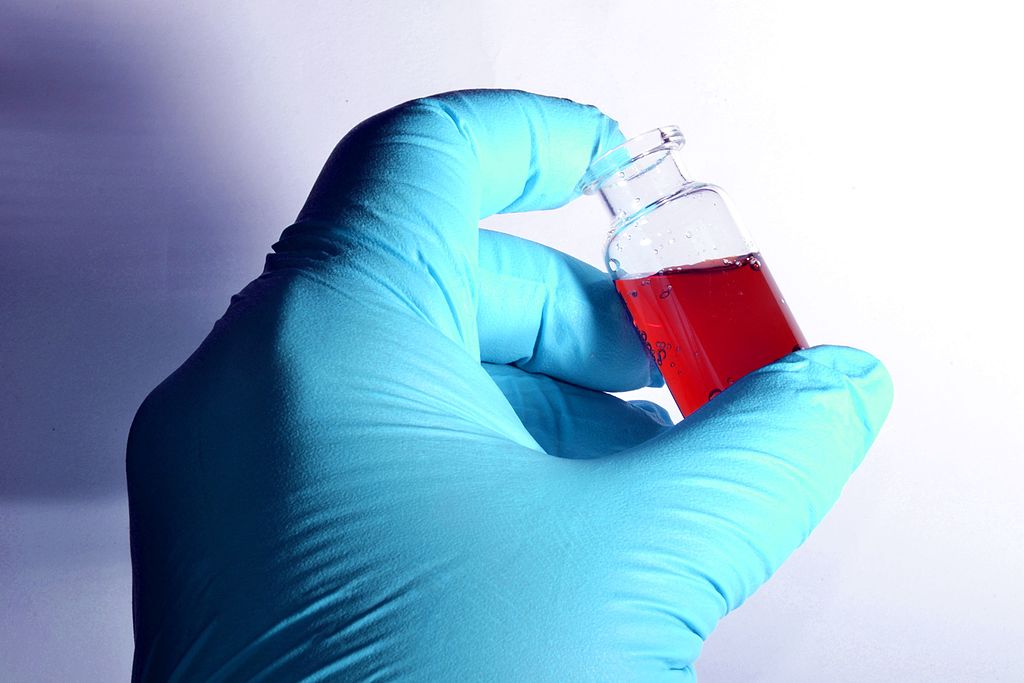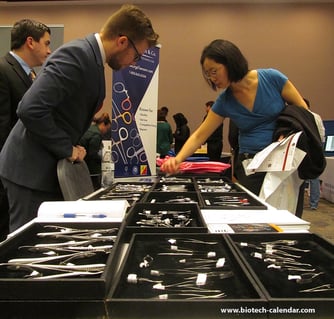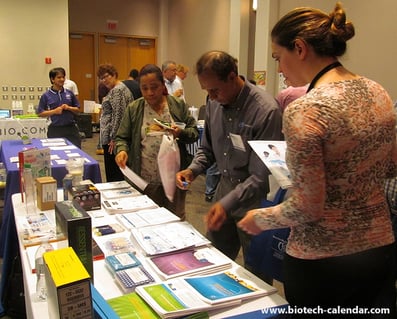 Washington University in St. Louis has 1 of 57 Institutes of Clinical and Translation Sciences (ICTS) in the United States. The ICTS at Washington University focuses on translating discoveries from both translation and clinical research into new treatments and therapies. The ICTS does not focus on just one area of life science research. Instead, researchers from all spectrums on the health sciences are able to use the institutes resources to further their work on topics like disease prevention and treatment. Training programs are also offered through the institute for researchers. (Image courtesy of P. David via Wikimedia Commons)
Washington University in St. Louis has 1 of 57 Institutes of Clinical and Translation Sciences (ICTS) in the United States. The ICTS at Washington University focuses on translating discoveries from both translation and clinical research into new treatments and therapies. The ICTS does not focus on just one area of life science research. Instead, researchers from all spectrums on the health sciences are able to use the institutes resources to further their work on topics like disease prevention and treatment. Training programs are also offered through the institute for researchers. (Image courtesy of P. David via Wikimedia Commons)
A recent grant of $46 million from the National Center for Advancing Translational Sciences has been awarded to Washington University to help support the ICTS and further the research being conducted.
"Academic medical centers are uniquely positioned to coordinate all the complex machinery linking basic research at the lab bench to doctors eventually being able to prescribe resulting therapies to their patients," explained the dean of the School of Medicine, Dr. David H. Perlmutter. "The mission of the ICTS is to facilitate this process, providing funds and resources at each step, so that the most up-to-date knowledge and latest discoveries move beyond the pages of scientific journals an into widespread practice."
40 different research cores are included in the ICTS, providing research from different specialties numerous resources to benefit their work, as well as the opportunity to collaborate with scientists from different disciplines than their own. Cores in the ICTS included:
- Anatomic and Molecular Pathology Core Lab
- Clinical Research Training Center
- Emergency Care Research Core
- Human Embryonic Stem Cell Core
- Laboratory for Infectious Disease Research
- Tissue Procurement Core
ICTS director, Dr. Bradley A. Evanoff, explained that "Scientists working on early-stage discovery are increasingly collaborating in teams with clinicians and other stakeholders to conduct research that will more directly lead to improvements in health. Close engagement between researchers and health-care providers allows the best methods for prevention, diagnosis and treatment to be more rapidly available to patients in a variety of settings."


Washington University in St. Louis receives millions of dollars in life science research funding each year.
In the 2016 fiscal year, the institution received more than $407.2 million in funding from the National Institutes of Health alone. Departments at the university benefiting from this funding include:
- Internal Medicine/Medicine - $89.7 million
- Genetics - $39.9 million
- Neurology - $37.9 million
- Pathology - $29.8 million
- Radiation-Diagnostic/Oncology - $19.6 million
Interested in marketing lab products and supplies to active life science researchers in the well-funded Washington University marketplace?
If so, exhibit at the upcoming BioResearch Product FaireTM Event in St. Louis in 2018. This event brings together laboratory suppliers with more than 200 life science researchers, PI's, grad students, lab manages, professors, purchasing agents, and other lab staff interested in finding the best new products and technologies available to use in their labs.
Lab suppliers who attend this popular Biotechnology Calendar, Inc. event are able to discuss tools and technologies with purchasing agents and end users to help them learn why these products will be the most beneficial to their research. The event also provides the opportunity for lab suppliers to discover new high-quality leads in one place in only a few hours.
The 19th Annual BioResearch Product FaireTM Event in St. Louis will take place on April 4th, 2018. To learn more about attending this event, visit the link below:


